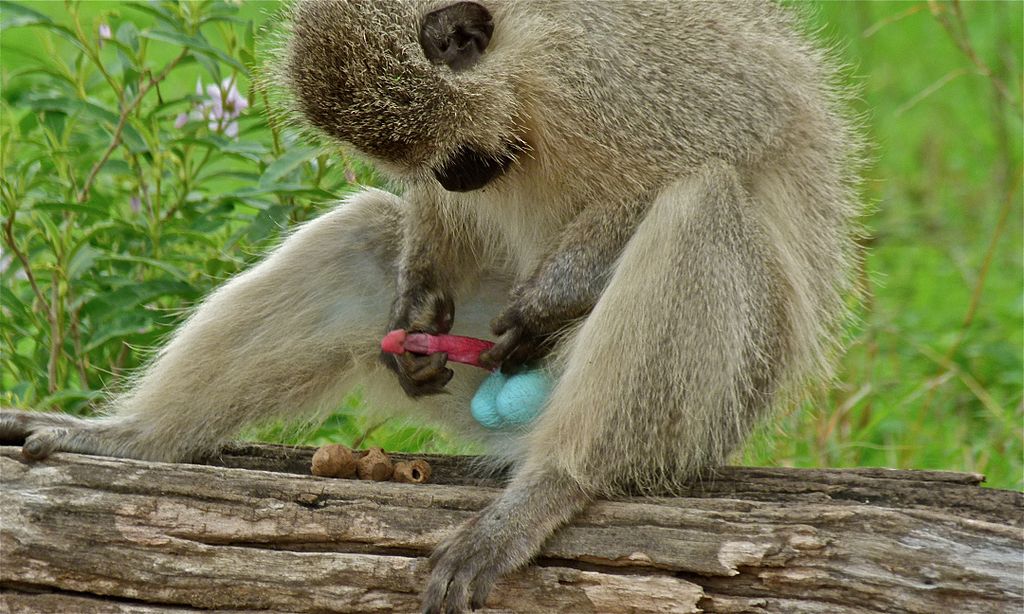
Source: Bernard DUPONT from FRANCE, CC BY-SA 2.0, via Wikimedia Commons
Human morals and intelligence might have emerged in response to a "sexual short circuit" evolutionary crisis.
Every feature that distinguishes humans from other primates and other animal species might have emerged in response to an evolutionary crisis. A story (hypothesis): In the early millenia, our ancestors could only achieve orgasm by copulating and thus producing offspring, "as Nature intended". But as millenia passed, humans evolved to become bipedal, and we lost our ability to climb trees. [See] About 3 million years ago, soon after our ancestors had become bipedal, some of them were in the jungles of Uganda, where banana is an important food source. [See] "Cultivated banana plants vary in height... Most are around 5 m (16 ft) tall, ...". [See] An evolutionary crisis occurred when the arms of our ancestors became long enough to make masturbation possible.

In other words, we humans have large brains and are capable of moral thinking of the form, "It would feel good, but it is wrong", because millions of years ago, some of our ancestral groups innovated by thinking, "Masturbation feels good, but I'd better not". Those groups which did not discover that masturbation is a bad idea remained "animals". The groups that did make this innovation generalized this new kind of thinking into what eventually became what we call "moral rules", which enabled the development of complex roles and social organizations, all of which both requiring and stimulating the enlargement of the brain and development of abstract cognition. The human species, and all of what we think distinguishes us from the other primates and animals, exists because millions of years ago we ate bananas, which caused our arms to lengthen, which caused our sexual reproduction system to "short circuit"!
If so, then we must avoid sexual perversion, both personally and in community. This hypothesis might explain why our species developed "moral thinking" and "moral rules". If so, then we must preserve, live, and pass on that moral thinking and those moral rules. "There is nothing new under the sun"; we face the same conditions and challenges that shaped those who came before us. [See]